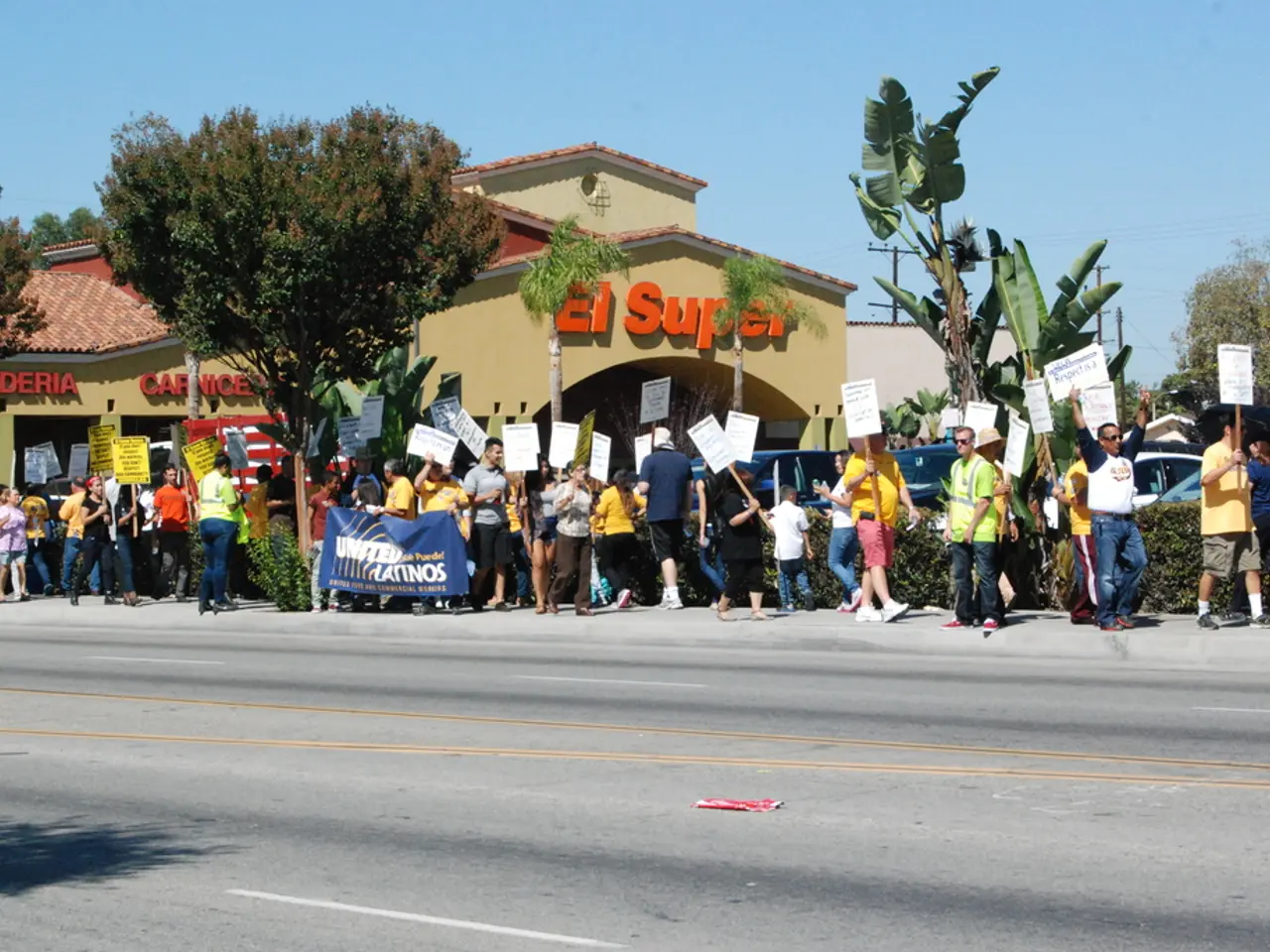Unanticipated Backings in the 2025 New York City Mayoral Election Race
The 2025 Democratic mayoral primary in New York City has been marked by a series of high-profile endorsements, some of which have raised eyebrows and added an element of unpredictability to the race.
### Andrew Cuomo
The most surprising endorsement came from former Mayor Michael Bloomberg, a centrist independent billionaire, who threw his support behind former Governor Andrew Cuomo, despite their sometimes-tense relationship with the Democratic establishment and Cuomo's controversial past[1][2]. Bloomberg's endorsement came with significant financial backing, contributing $3.3 million to the Super PAC supporting Cuomo, making him responsible for a third of its total fundraising[2].
Former state Comptroller H. Carl McCall endorsed Cuomo in February, before he announced his candidacy for mayor[5]. However, their relationship was complex, as they were political rivals in a gubernatorial primary in 2002[6]. Cuomo later appointed McCall to lead the SUNY board of trustees.
Twenty-five Hasidic sects initially endorsed Adrienne Adams as their first choice for mayor, but later flipped to support Cuomo after their initial announcement[7].
### Zohran Mamdani
Mamdani, a democratic socialist, gained the support of Rep. Alexandria Ocasio-Cortez (AOC) and Sen. Bernie Sanders, reinforcing his leftist platform and solidifying his standing as the progressive standard-bearer in the race[3]. However, the notable absence of support from Rep. Hakeem Jeffries, a leading figure in New York’s Democratic congressional delegation, was telling, suggesting possible tension or caution within the broader Democratic establishment[4].
### Other Dynamics
State Sen. John Liu of Queens endorsed Mamdani, praising his integrity[8]. Brooklyn Democratic Party boss Rodneyse Bichotte Hermelyn endorsed Cuomo in March[9]. New York City Council Member Selvena Brooks-Powers endorsed Cuomo, a decision that had consequences: losing her spot on the council's budget negotiating team and shifting her seat away from the speaker in the council chamber[10].
Cuomo, running as an independent, dismissed suggestions that weaker candidates should drop out, underscoring the unpredictability of the race and the lack of a unified Democratic front[3]. Meanwhile, incumbent Eric Adams declared he would run in the general election as an independent, a couple weeks after Bichotte Hermelyn's endorsement of Cuomo[11].
### The United Federations of Teachers
The United Federations of Teachers, a powerful union, did not endorse a mayoral candidate for the 2025 citywide elections[12]. The ultra-Orthodox Jewish community's relationship with Andrew Cuomo is complicated due to tensions from his COVID-19 policies, but he has secured support from a variety of Orthodox sects[13].
## Conclusion
The most surprising and confusing endorsement of the 2025 Democratic mayoral primary was unquestionably Michael Bloomberg’s backing of Andrew Cuomo, given their divergent political brands and Cuomo’s fraught history[1][2]. Mamdani's progressive endorsements, while ideologically consistent, highlighted the party’s leftward shift. The most confusing aspect, however, may be the lack of unified establishment support for Mamdani despite his primary win, as seen in Jeffries’ non-endorsement, suggesting deeper fault lines within New York City’s Democratic politics[4].
- The political landscape of the 2025 Democratic mayoral primary in New York City is being shaped by a mix of policy-and-legislation-related endorsements, as evidenced by former Mayor Michael Bloomberg's support for politics-independent Andrew Cuomo, despite their past disagreements.
- General-news developments, such as the lack of united establishment support for democratic socialist Zohran Mamdani despite his primary win, underscore the ongoing ideological split within the Democratic party in New York City.








